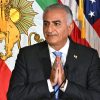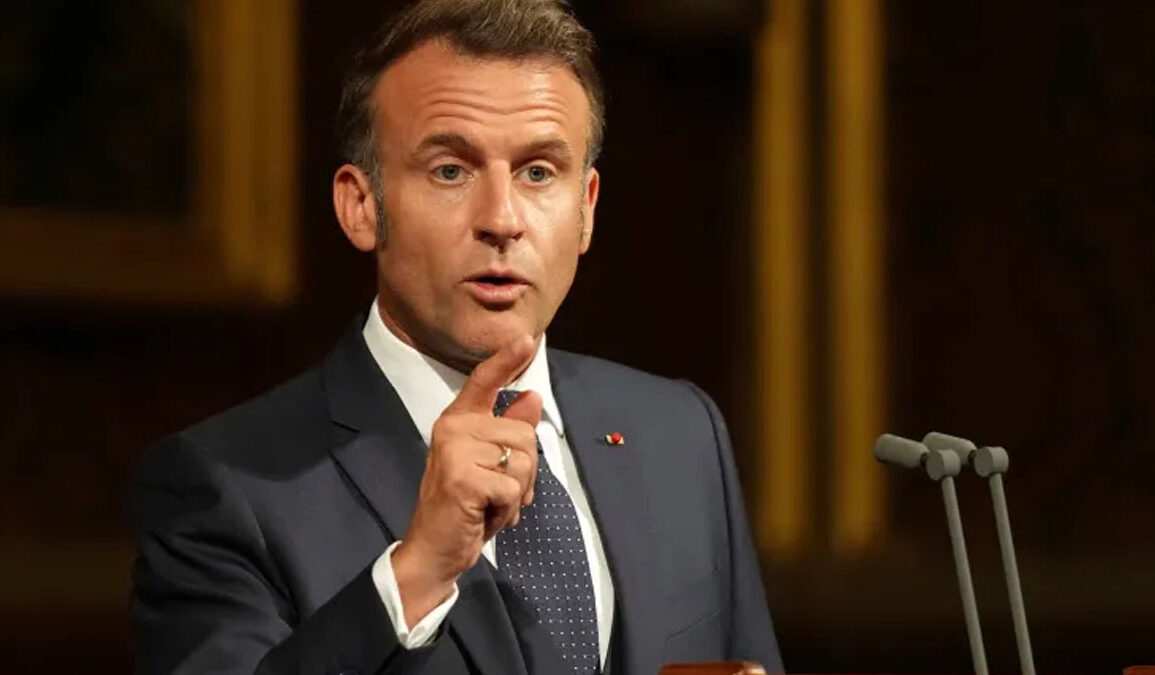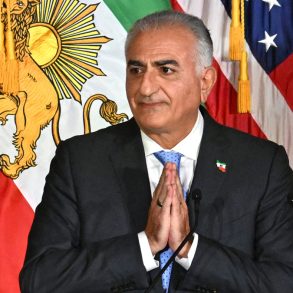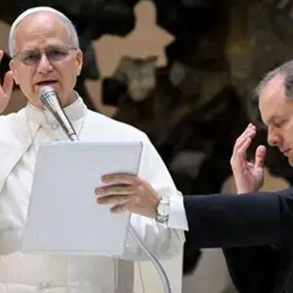French President Emmanuel Macron has made a surprise announcement that France will formally recognize the State of Palestine this September during the United Nations General Assembly. If carried out, this will make France the first G7 country and first Western permanent member of the UN Security Council to do so. Macron is presenting the move as a bold step toward peace in the Middle East, but critics argue that it is ill-timed, dangerous, and ultimately serves to reward Hamas while weakening any chance for meaningful negotiation.
Macron’s Rationale: “We Will Achieve Peace”
In a late-night post on X, Macron declared, “Consistent with its historic commitment to a just and lasting peace in the Middle East, I have decided that France will recognize the State of Palestine.” He explained that the announcement would be made formally at the UN General Assembly in New York in September. He outlined his vision for the region, calling for “an immediate ceasefire, the release of all hostages, and massive humanitarian aid for the people of Gaza.”
Macron continued, “We must also ensure the demilitarization of Hamas, secure and rebuild Gaza. And finally, we must build the State of Palestine, guarantee its viability, and ensure that by accepting its demilitarization and fully recognizing Israel, it contributes to the security of all in the region.”
In his message to Palestinian Authority President Mahmoud Abbas, Macron emphasized his determination to proceed: “In light of the commitments you have made, France will proceed with the full recognition of Palestine as a state when I attend the United Nations General Assembly this September.”
Macron also described the move as one that reflects the will of the French people. “The French people want peace in the Middle East. It is our responsibility—as French citizens, alongside Israelis, Palestinians, and our European and international partners—to prove that peace is possible.”
Harsh Response From the United States
The United States reacted strongly against the French announcement. Secretary of State Marco Rubio said the move was a mistake with serious consequences. “This reckless decision only serves Hamas propaganda and sets back peace,” Rubio posted on X. “It is a slap in the face to the victims of October 7th.”
Rubio’s comments reflect growing frustration in Washington. U.S. Special Envoy to the Middle East Steve Witkoff had earlier announced that the U.S. was pulling its team out of ceasefire negotiations in Doha, saying Hamas had refused to engage in good-faith talks. “While the mediators have made a great effort, Hamas does not appear to be coordinated or acting in good faith,” Witkoff explained. “It is a shame that Hamas has acted in this selfish way.”
Fierce Condemnation From Israel
Israel’s reaction was even more direct and furious. Prime Minister Benjamin Netanyahu said Macron’s decision was “a reward for terror” and directly undermined Israel’s security. “We strongly condemn President Macron’s decision to recognize a Palestinian state next to Tel Aviv in the wake of the October 7 massacre,” he said. “Such a move rewards terror and risks creating another Iranian proxy, just as Gaza became. A Palestinian state in these conditions would be a launch pad to annihilate Israel—not to live in peace beside it.”
Deputy Prime Minister and Justice Minister Yariv Levin added, “The Land of Israel belongs to the people of Israel, and even President Macron’s declaration will not change that.” He described the decision as “a black stain on France’s history and a direct boost to terrorism.”
Israeli Defense Minister Israel Katz echoed those concerns, saying Macron’s plan was “a disgrace and a surrender to terrorism.” He warned that Israel would not allow the creation of “a Palestinian entity that would harm our security and endanger our existence.”
Palestinian Officials Praise the Move
On the Palestinian side, the announcement was welcomed with open arms. Hussein al‑Sheikh, the deputy to Mahmoud Abbas, praised the decision and said it “reflects France’s commitment to international law and its support for the Palestinian people’s rights to self‑determination.”
The Palestinian Foreign Ministry echoed that sentiment, calling the recognition an “important contribution” to restarting the peace process. France’s move also received support from Irish Deputy Prime Minister Simon Harris, who called it a step in the right direction and urged other European nations to follow.
A Move That Looks Desperate, Not Strategic
Although Macron is promoting this as a courageous step for peace, it increasingly looks like a risky and desperate move. French officials had previously tried to build a broader European coalition with Saudi Arabia and other countries to support a two-state solution, but those efforts fell apart after the Israel-Iran conflict in June. Instead of working through consensus, Macron is now charging ahead on his own, hoping others will follow.
A French presidential official told CNN, “I’ve had other colleagues on the phone, and I’m sure that we won’t be the only ones recognizing Palestine in September.” But there is no confirmation that other major countries are ready to follow suit, especially in light of U.S. opposition.
Macron’s decision also carries domestic risks. France has the largest Jewish and Muslim populations in Europe, and this move could inflame tensions. While the country has long expressed sympathy for the Palestinian cause, the current climate of war, terrorism, and regional instability makes unilateral recognition extremely controversial.
The fact that Hamas celebrated France’s announcement should be cause for concern. Macron says the goal is to support peace and disarm Hamas, but Hamas sees it as a victory. Critics argue that this kind of recognition sends the message that terrorism and violence are legitimate tools for gaining political ground.
Prime Minister Netanyahu warned clearly that “the Palestinians do not seek a state alongside Israel; they seek a state instead of Israel.” Recognizing a Palestinian state now, when Hamas still controls Gaza and remains armed and active, could severely damage the peace process. Instead of encouraging compromise and dialogue, the move could embolden radicals and sideline moderates on both sides.
Macron’s recognition of Palestine may be intended as a signal of moral leadership, but it risks making the situation worse, not better. With Hamas unrepentant, Israel under threat, and the peace process stalled, this move seems more like a symbolic gesture than a practical solution. By going it alone, Macron has risked alienating allies, encouraging extremists, and weakening the very peace he claims to support. The world does not need bold declarations right now. It needs clear-headed diplomacy – and Macron may have just made that much harder to achieve.
NP Editor: Macron is a grandstanding idiot. This is a difficult negotiation, and Macron has just shown that the West is not unified. Stupid move that will prolong the war and more people will die because of it.








